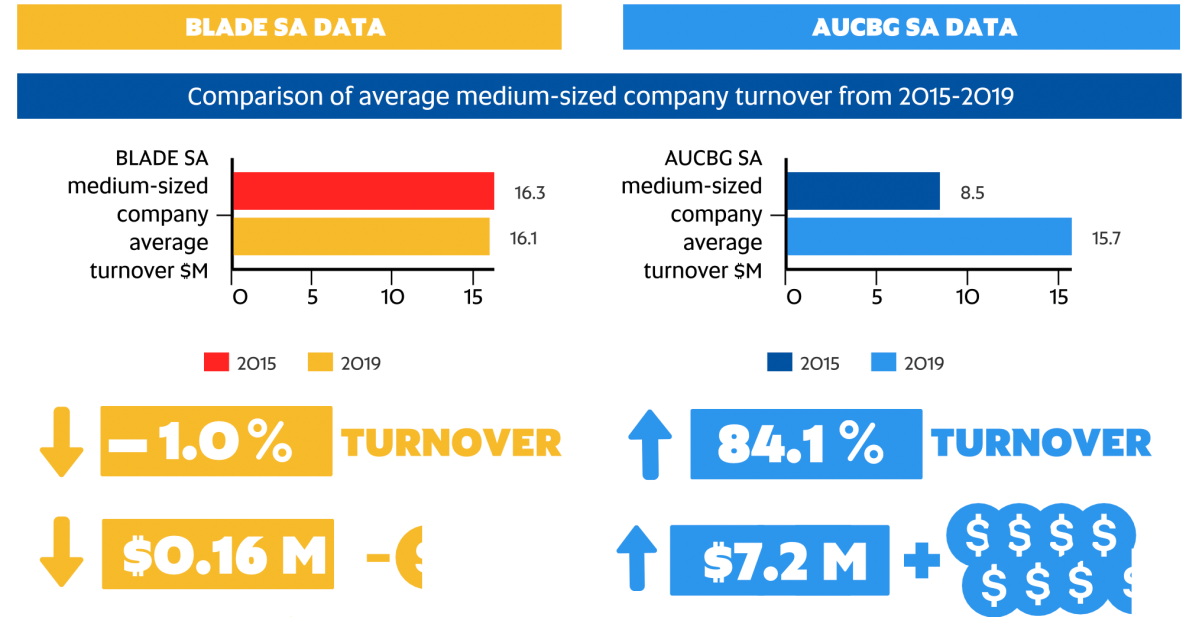10 minutes with… director of Australian Centre for Business Growth Ryan Williams
Ryan Williams told InDaily that economic value in Adelaide’s “shrinking middle market” could be unlocked with targeted support.


AUCBG director Ryan Williams. Photo: Provided.
“Greater Adelaide is an environment primed for momentum. It’s primed for better,” AUCBG director Ryan Williams told InDaily.
“The work that’s been done to build capability in the startup environment is admirable. I think there are some amazing startup businesses coming out of this ecosystem.
“If you really want to be transformative to the economy there is another job to do, which is about the grows-up and stays-up side.”
Williams sees Adelaide from a unique perspective. The international business leader has only lived in SA since late 2020, and his appointment as director of the AUCBG gives him broad oversight over the local scaleup sector.
Prior to arriving in town from Johannesburg, Williams was CEO of Nota Bene – a strategy and marketing consultancy eventually sold to British multinational communications firm WPP.
In 2015, he became CEO of Primedia Unlimited, assisting startups to achieve growth. Following that, he joined South African cinema business Ster-Kinekor as CEO and delivered 150 per cent growth in company profits.
The director told InDaily that he could see better for Adelaide, especially for scaleups that he believes need support to thrive in South Australia.
That assistance is primarily a knowledge piece for the business leader, who said that startups in Adelaide were doing well thanks to government assistance and ecosystems. However, taking it to the next level is another ball game.
“Startups are kind of like getting a car and not really knowing how to drive it yet. You don’t know what all the bits are. Government and other support mechanisms build roads, make sure there’s a fresh set of tyres, give the engine a service, fill the tank with gas – but you still need to teach them how to drive,” he said.
“The next layer is: now we’re behind the wheel, how do we know how to generate capabilities and skills? Because millions of people don’t know how to drive.”
The director pointed to recently released data from UniSA that compared the growth rates of companies that completed AUCBG training programs to those that didn’t.
It shows that between 2015 and 2019, the average medium-sized South Australian company saw a decrease in turnover by 1 per cent in total, and shed one full-time equivalent worker.
For companies that completed AUCBG programs, they saw turnover increase by 81.4 per cent and added 12.3 FTEs to their workforce over the same period.
Williams acknowledged that it was difficult to attribute causation for the spikes in turnover over the period to AUCBG programs, but said knowledge sharing and general support was vital to help scaleups thrive in South Australia.

Via UniSA.
He said this support can come in many forms, proffering an example of implementing childcare services for startup and scaleup workers.
“Starting and growing a business is a time-consuming thing, and can be all-consuming,” he said.
“Having things in place – more broadly than the idea of how do you create more equitable access to the workforce across gender equity – like inner-city childcare facilities that buy more freedom and latitude.
“In the South Australian landscape, the level of sophistication in financial markets and localisation of access to financial resources is another area. You could create friendly settings for growth capital.”
The director also pointed to new figures from the Australian Bureau of Statistics released last week which found South Australia’s population could reach two million people by the end of the decade under a “largest population increase” scenario.
“That’s great,” Williams said, “less great is the median age average. You’re going to need a base of folks to support and that’s going to be delivered by the state.
“What’s the opportunity to build out and attract a deeper pool of younger folks? What would that take so that you can rebalance and ensure that you have a tax base able to generate a sustainable wave of return in order to support folks as they age?
“By taking care of middle market segments, you’re not placing bets on winners in an uncertain frame in the startup community, you’re placing bets on businesses that have some established foothold and track record.”
The media’s role in business success and how role models can take charge
Asked whether the media in South Australia could do more to support businesses and celebrate the achievements of entrepreneurs, Williams said it would be remiss for a US-style glorification model to take hold.
“I’d make a critique of Australia more broadly, having worked in other jurisdictions. There’s a continuum of stuff and I get the tall poppy problem and the long shadow of that, but in the US there are ticker tape parades for somebody opening an envelope at the one extreme, the other end there’s just earth-shattering silence. Somewhere in between that is right,” he said.
“I think we’re too far to earth-shattering silence as a nation. We have an external focus on role models. I find it peculiar. We look further afield for people that we would aspire to.”
He said Australian entrepreneurs need to be held up to other businesspeople as role models: “You don’t need to go and read a book by somebody in Austin – the set of context is so different, the labour legislation is so different”.
“I think the role of media is really being part of that conversation for heroing the ‘every person’ around us who’s been there, done that.”
Support for founders is especially important given the number of entrepreneurs starting businesses without having gone through the university system.
Williams told InDaily that from the 4000 people AUCBG has worked with, about a third of the CEOs came to the centre with “zero education past Year 12”.
“Of the balance, only half would have what we would regard as a business qualification.
“Government can’t go out there and become educators – that’s not their role – but gee they can continue to fund really high-quality programs and provide access for entrepreneurs that need the knowledge.”
The director said his views were “not an indictment of the past”, but rather a “recognition of where we are”.
“If we’re clear about where we want to go, then we can take active steps to get there,” he said.
“I think this is an incredible place to live in.”




